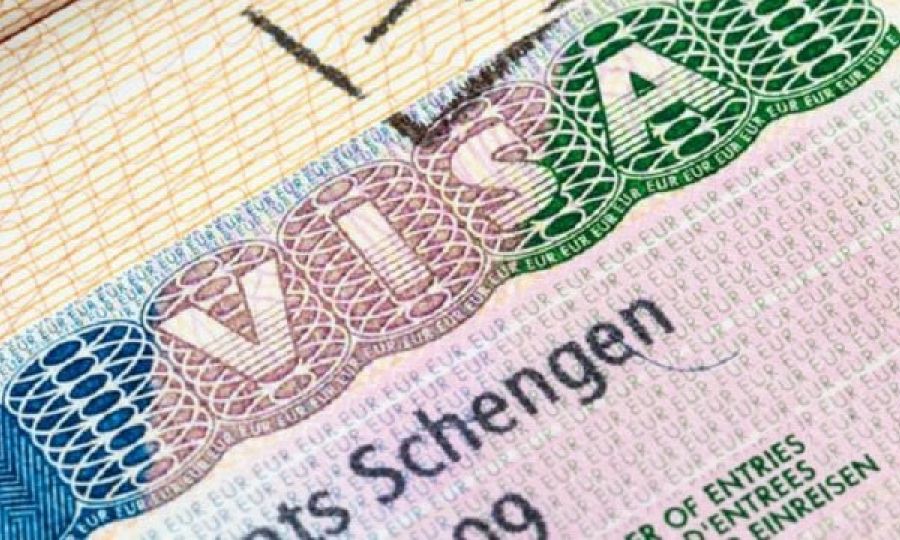In a rapidly escalating situation, the Schengen visa crisis with Turkey has reached new heights as the Turkish government demands revisions to the existing agreement, causing significant concerns among European Union (EU) member states. The crisis, which began several weeks ago, has now turned into a diplomatic standoff, with potential implications for the region’s political and economic stability.
President Recep Tayyip Erdoğan, in his speech at the General Assembly of the Union of Chambers and Commodity Exchanges of Turkey (TOBB) following his re-election as President, addressed the visa issue, stating, “We will resolve the visa issue, which has recently been used as political blackmail, as soon as possible.”
The Schengen visa agreement, established in 1985, allows for the free movement of people within 26 European countries, effectively creating a borderless area. However, recent tensions have arisen over the implementation of the agreement between the EU and Turkey, a candidate country for EU membership.
The Turkish government has voiced its frustration with what it perceives as unequal treatment under the Schengen visa regime. Ankara argues that its citizens face stringent visa requirements and prolonged processing times, while citizens of other candidate countries, such as Serbia and Montenegro, enjoy more relaxed rules. Turkish officials contend that this situation is unfair and demands a revision of the visa agreement.
The EU member states, on the other hand, express concerns about the potential impact of relaxing visa requirements for Turkish citizens. They raise issues such as illegal migration, security risks, and strained resources for processing applications. These concerns have fueled a reluctance among EU countries to accommodate Turkey’s demands for changes to the current visa agreement.
As negotiations have stalled, tensions have risen, leading to a diplomatic impasse. The Turkish government has threatened to suspend cooperation on key issues, including the migration deal struck between the EU and Turkey in 2016, which helped control the flow of migrants into Europe. Such a move would have significant consequences for both Turkey and the EU, potentially reigniting the migration crisis that plagued Europe just a few years ago.
In response to the escalating situation, the EU has urged Turkey to remain committed to the existing agreements and continue constructive dialogue to resolve the crisis. European leaders emphasize the importance of maintaining stability and cooperation in the region, but they also acknowledge the need to address Turkey’s concerns in a fair and balanced manner.
The EU has recently reached a political consensus on the digitization of the Schengen visa application process. After the completion of the official approval process, this new system will come into effect, eliminating the need for visa applications to be made at consulates or visa offices. Instead, applications will be made through the “EU online visa application platform” in the digital environment.
This new system will also include applications from Turkey, but there is little optimism regarding the alleviation of recent difficulties.
The number of applications, which had rapidly decreased during the pandemic, has increased even more quickly after the lifting of restrictions. However, one of the reasons for the problems is that the number of staff in visa departments, which was reduced during the pandemic, has not increased at the same pace.
On the other hand, the increase in the number of asylum seekers among those traveling abroad with a visa from Turkey, including Erasmus students, police officers, and academics, has led to more careful scrutiny of white-collar applications.
Germany announced the launch of a pilot program to reduce the delay in visa applications and shorten waiting times. According to an announcement made by the German Foreign Ministry on June 7, the appeal period for those whose visa applications were rejected in Turkey, China, and Morocco has been suspended for six months.
In 2019, controls on entry to Germany for Turkish citizens with green passports were tightened, while the rejection rate for Schengen visa applications doubled. It was noted that the expansion of the scope of individuals granted green and diplomatic passports in Turkey in recent years raised concerns among German authorities.
While EU officials and countries belonging to the Schengen area state that there is no political bias against Turkey, it is known that there has been increased scrutiny in granting visas due to various reasons such as the increase in the number of people expressing a desire to travel abroad after the recent elections, granting citizenship to refugees, and easier acquisition of citizenship through property ownership.
Source: politurco.com



